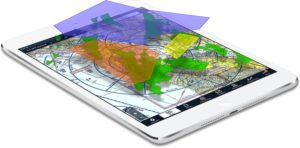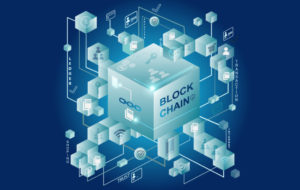
Regardless of whether you are using Windows, Linux, Android, iOS/ iPhone, Web or complex applications such as Internet shops or GIS, we will work with you every step of the way. From the conceptual design of your application, through development, implementation and “going live” or ongoing updates … we act as an external service provider with the same efficiency as an in-house department.
In many areas “Apps” have already replaced browser applications. Regardless of whether “App” or “Web”, we design and program according to your wishes – especially hybrid solutions, so that the costs for both apps and your browser application remain within limits and you don’t have to start from scratch every time. Functions are not developed for every platform, but rather “one-for-all”. Responsive web design is of course only the very first of many minimum requirements.
We recommend web applications for all applications that are to be accessible to a wide audience, or for which a software installation on terminal devices is not desired or not possible.
- Runs on all devices with a modern browser, regardless of platform
- No installation necessary on the devices
- Central data storage in the cloud or on a web server
- Highly flexible design options
- A permanent and reliable Internet connection is a prerequisite
- Publication in App Stores is avoided
Mobile applications for smartphones and tablets continue to be a trend. They are suitable wherever mobility is a priority or where corporate knowledge must be distributed in the most efficient way possible.

- Ideal when smooth operation and mobility are to be combined
- Installation required on each terminal device
- Subject to rapid technological change
- Excellent marketing and sales tool
- First choice for tasks requiring the integration of complex sensors/GNSS/GIS
- Offline use possible with periodic connection for data synchronisation
- High development effort with parallel storage for Android and iOS
Desktop software or client-server systems are ideally suited if your individual application is to be operated within a protected framework.
- Rapid development time, resulting in lower investment and maintenance costs
- Very widespread technologies that have been proven over decades
- The required computing power is shared among all clients
- Installation required on each terminal device
- Data storage either decentralized on each client, or centralized on an enterprise server
- Ideal technology for communication with external devices
- Reliability mostly independent of an Internet connection

Geographic information systems (GIS) are computer-aided systems for the collection, processing, analysis and presentation of spatial data (geodata). They are optimized for spatial questions, are based on spatial data, and they support and integrate a large number of work steps and contribute to the acquisition of information by means of analyses. The special feature of GIS is the digitally captured and managed spatial reference in the form of geometric data.
As a company that develops primarily for the aviation industry, in recent years we have gained extensive experience in GIS for the following categories:
- Tools: Collection, integration and use of various tools for dealing with spatial issues
- Data: Spatial relevance of data and related special features in preparation and processing (e.g. with regard to indexing)
- Integration perspectives: GIS in the interaction of different technologies which must be integrated in a software environment
In particular, the differing adaptations and integrations of the various input and output interfaces required for the respective application domain sometimes place high demands on development and maintenance. This is made evident by typical use cases in the GIS environment:
- Geography
- Geodesy
- Cartography
- Remote sensing
- Statistics
- Mathematics
- Computer science
- Agriculture and forestry
- Logistics and Services
- Market research
- Spatial planning
- Environmental analysis
Search Engine Optimization (SEO) is a very special and broad field. By this we mean all actions that improve the visibility of a website in an organic search. This includes in particular the creation of content and the development of measures that are “rewarded” by the algorithms of the respective search engine.
SEO is roughly divided into Onpage optimization (the website itself is optimized) and Offpage optimization (measures are taken outside your own website).
OnPage optimization should make the site easily accessible and understandable for search engines. OffPage optimization should increase the relevance, and give the project the necessary authority and therefore the necessary influence.
Search engine optimization deals with both users and search engines. It’s all about understanding how people search, what answers they need and what content helps them. The search engine operators, first and foremost Google of course, use sophisticated and completely dynamic algorithms to generate the search results, which are constantly changed and adapted. Accordingly, the ranking of search results is constantly changing and has limitations in terms of analysis and interpretation.
Successful search engine optimization essentially covers the subject areas of ABC:
- Architecture (information architecture)
- Backlinks
- Content
In addition to search engine optimization (SEO), search engine advertising (SEA) can also be used. SEA can send traffic to websites very quickly and effectively, but you pay for every single click. This differs significantly from search engine optimization (SEO), which sometimes takes months until the optimizations are measurably “rewarded”.
However, the long-term return on investment (ROI) for a properly implemented SEO campaign clearly puts SEA in the shade, as users trust organic results far more than advertising results. In addition, users click far more often on organic search results than on paid Google ads.
SEA makes sense in order to generate sales immediately and as a medium- and long-term supportive online marketing channel. SEO is a long-term investment that pays for itself with the snowball effect. Over time, it becomes increasingly easier to develop new keywords, topics and markets.
A side effect of search engine optimization is that you get to know your own target group far better through the user-centered nature of the measures. In addition, other online marketing channels also benefit.

Blockchain – we also deal with the various aspects of this still new and disruptive technology.
A block chain is a decentralized transaction log between two or more parties. Blockchain means nothing more than a chaining of transactions into a fixed, unchangeable block. This can be seen as a digital register that records transactions between different users.
Every change is recorded transparently and locally. The protocol is not available on a single server or computer, rather it is distributed over countless computers, so nobody owns the protocol. Neither individuals nor companies or authorities have any influence on the protocol. A neutral protocol such as Blockchain is not manipulable, and due to the large distribution it is not possible to hack it.
Blockchain does not require administrators. The majority determines the handling of the protocol. Blockchain transactions are often known as financial transactions, but they can also involve any other type of completely different information, such as votes, land register entries or certificates of origin and possession of diamonds. Each transaction is logged within a block chain. A transaction can no longer be made invisible, but the transaction participants can (but do not have to) act anonymously.
Intermediary entities such as banks, clearing houses, trustees or authorities become superfluous. Participants benefit from an immensely accelerated settlement process. Currency transactions or share transactions become considerably safer, faster and cheaper!
“Smart Contracts” are the most popular applications in connection with Blockchain. These are digital, software-based automated contracts. Based on the “if-then-principle”, Smart Contracts carry out measures corresponding to the contract, which are linked to conditions laid down in the contract. Without the presence of a mediating authority, transactions are processed via the block chain.
We have already implemented our first project in the real estate sector.